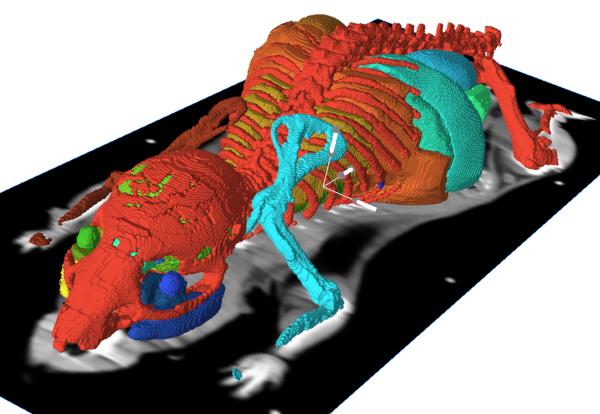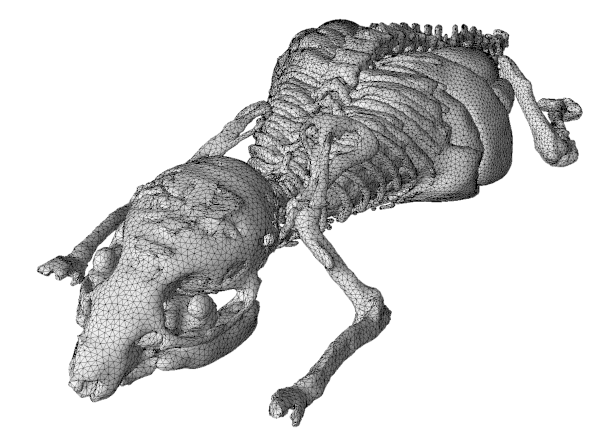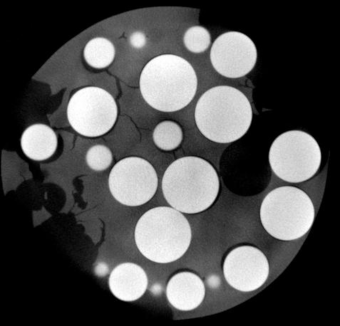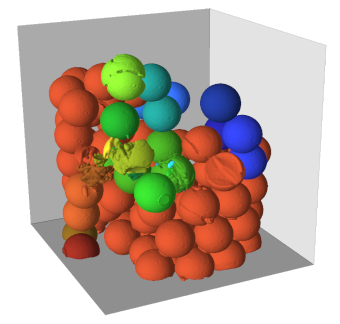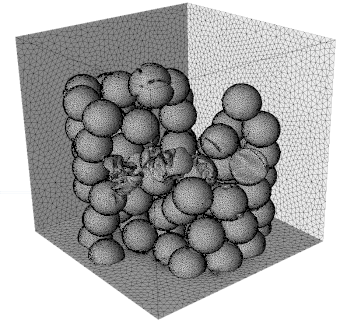
Model Courtesy UCSB Materials Department - Raw Voxel Model (Left), Smoothed Model (Center), Mesh (Right)
3D Image Data Processing
Overview
Simmetrix' 3D image data processing capabilities give the ability to transform a segmented 3D image data set into a geometric model suited for meshing and numerical analysis preparation. This Discrete model, which is Simmetrix' mesh based non-manifold model description, supports further modeling operations (topology creation, insertion of other geometry via boolean operations, etc.), provides a means to hold analysis attributes and defines the domain for which the mesh for the analysis is created.
The creation of the Discrete model from an image data set is aided by a variety of tools that help cleaning up artifacts inherent to image data and eliminate the quantization artifacts of the original domain description through voxels.
Capabilities:
- Import/export image data from various file formats
- Adjust voxel size
- Eliminate small voxel clusters
- Apply erosion/dilation algorithms to remove artifacts
- Create Discrete model with various periodicity boundary conditions
- Smooth Discrete model to eliminate quantization artifacts
- Access segmentation id of image data from geometric entities
- Save Discrete model for further processing with Simmetrix' tools
Digimouse Example
Above is a combined view of the geometric model for the Digimouse, along with a slice of the CT scan data to show how the model aligns with the scan data.
Below is a finite element mesh of the Discrete model.
Digimouse data courtesy of the Biomedical Imaging Group at USC.

